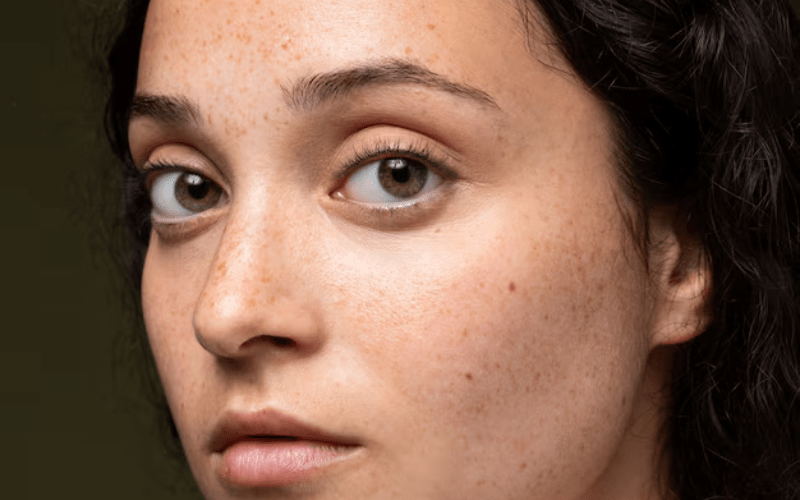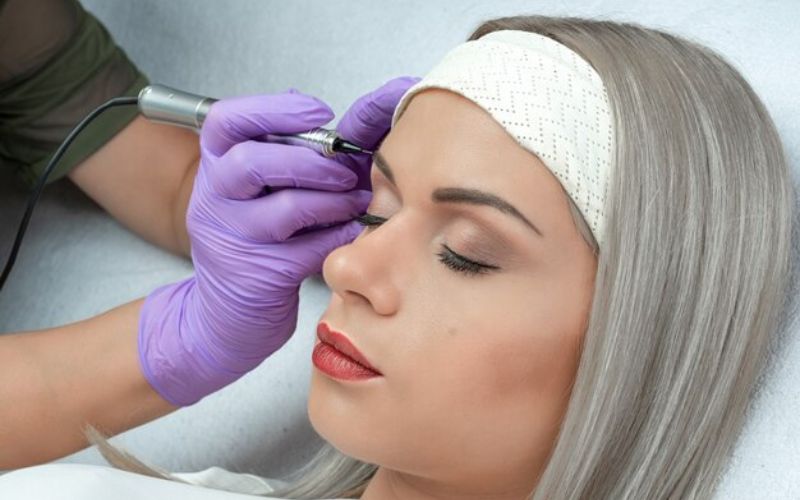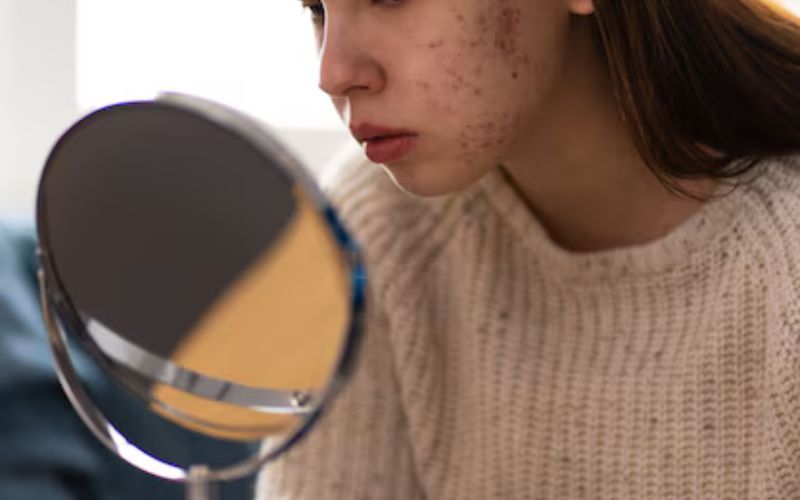Understanding Pigmentation: Causes, Treatments, and Expert Care by Dr. Vishal Brahmbhatt
Introduction to Pigmentation
Pigmentation refers to the coloring of the skin. It is primarily determined by the amount of melanin, a pigment produced by specialized cells called melanocytes. While pigmentation is a natural and harmless process, certain conditions can lead to abnormal pigmentation, causing distress and impacting an individual’s confidence. Dr. Vishal Brahmbhatt, a renowned dermatologist in Ahmedabad, offers comprehensive treatment options for various pigmentation disorders. .

Types of Pigmentation Disorders
Hyperpigmentation
Hyperpigmentation occurs when patches of skin become darker than the surrounding skin. Common causes include:
Freckles: Small brown spots on the skin, often exacerbated by sun exposure.
Sun Exposure: UV rays stimulate melanin production, leading to sunspots or age spots.
Inflammation: Post-inflammatory hyperpigmentation can occur after an injury or skin inflammation, such as acne.
Melasma: Often seen in pregnant women or those on birth control pills, melasma results in dark, irregular patches, usually on the face.
Hypopigmentation
Hypopigmentation is characterized by patches of skin that are lighter than the surrounding area. Key conditions include:
Vitiligo: An autoimmune disorder that destroys melanocytes, leading to white patches on the skin.
Albinism: A genetic condition resulting in little or no melanin production, affecting skin, hair, and eyes.
Pityriasis Alba: Commonly seen in children and young adults, presenting as scaly, light patches.
Causes of Pigmentation Disorders
Genetic Factors
Genetics play a crucial role in determining skin pigmentation. Conditions like albinism and familial progressive hyperpigmentation are inherited.
Environmental Factors
Prolonged exposure to sunlight is a significant factor in pigmentation disorders. UV radiation can cause direct damage to melanocytes and DNA, leading to hyperpigmentation.
Hormonal Changes
Hormonal fluctuations, particularly in women during pregnancy or while taking oral contraceptives, can trigger conditions like melasma.
Skin Injuries and Inflammation Injuries
acne, and other forms of skin inflammation can lead to post-inflammatory hyperpigmentation, where the skin produces excess melanin as it heals.
Medications
Certain medications, such as antibiotics, anti-seizure drugs, and chemotherapy drugs, can cause pigmentation changes as a side effect.

Diagnosis and Treatment Options
Dr. Vishal Brahmbhatt employs a variety of diagnostic tools to accurately identify pigmentation disorders:
Wood’s Lamp Examination: Uses UV light to highlight areas of pigment changes.
Skin Biopsy: A small sample of skin is taken to examine under a microscope.
Blood Tests: To rule out underlying conditions contributing to pigmentation issues.
Dermatoscopy:A non-invasive tool that allows detailed examination of the skin.
Treatment Options
Hydroquinone: A skin-lightening agent that reduces hyperpigmentation.
Retinoids: Promote cell turnover and reduce dark spots.
Corticosteroids: Help lighten the skin by reducing inflammation.
Azelaic Acid: Helps reduce pigmentation and is particularly useful for acne-prone skin.
Kojic Acid: Inhibits melanin production and helps lighten pigmented areas.
Procedures
Chemical Peels: Use of acids to remove the top layer of skin, promoting new skin growth.
Laser Therapy: Targets melanin and breaks down pigmented areas.
Microdermabrasion: Exfoliates the skin, reducing the appearance of dark spots.
Cryotherapy: Uses extreme cold to remove pigmented skin cells.
Microneedling: Promotes collagen production and reduces pigmentation.
Preventive Measures
Tips
Sun Protection
Use Sunscreen: Apply broad-spectrum sunscreen with at least SPF 30 daily.
Wear Protective Clothing: Long sleeves, hats, and sunglasses can help protect against UV rays.
Seek Shade: Avoid direct sunlight during peak hours.
Reapply Sunscreen: Every two hours and after swimming or sweating.
Skin Care Routine
Gentle Cleansing: Use mild, non-irritating cleansers.
Moisturize Regularly: Keeps the skin hydrated and reduces the risk of irritation.
Avoid Harsh Products: Products with alcohol or strong fragrances can worsen pigmentation.
Regular Exfoliation: Helps remove dead skin cells and promotes new skin growth.
Antioxidant Serums: Products with vitamin C or E can help protect the skin from damage and reduce pigmentation.
Expert Opinion and Tips
Dr. Vishal Brahmbhatt’s Insights
Consistency is Key: "Regular use of prescribed treatments and sun protection measures is crucial for managing pigmentation disorders."
Healthy Lifestyle: "A balanced diet, adequate hydration, and avoiding smoking can improve overall skin health." Professional Guidance: "Always seek professional advice before starting any new skin treatment to ensure it is suitable for your skin type and condition." Patient Education: "Understanding the causes and preventive measures of pigmentation can help patients manage their skin condition more effectively."
Professional Guidance: "Always seek professional advice before starting any new skin treatment to ensure it is suitable for your skin type and condition."
Patient Education: "Understanding the causes and preventive measures of pigmentation can help patients manage their skin condition more effectively."
When to See a Dermatologist
If over-the-counter treatments are not effective or if your acne is severe, it’s crucial to consult a dermatologist. Persistent or severe acne can lead to emotional distress and permanent scarring, making professional intervention necessary. Dr. Vishal Brahmbhatt and the team at KJ Aesthetics in Ahmedabad offer comprehensive acne treatment plans designed to meet individual needs and provide lasting results.
Contact Us
Ready to achieve healthy, radiant skin? Contact Dr. Vishal Brahmbhatt at KJ Aesthetics today. Visit our website at https://kjaesthetics.in/ to book an appointment or learn more about our services.
Book an Appointment
Experience top-notch dermatological care by booking an appointment with Dr. Vishal Brahmbhatt today. Visit our clinic at 306, Third floor, Pushti, Heights, Gurukul road, Memnagar, Ahmedabad- 380052 or call us at +91 9737391917. You can also book online through our website https://kjaesthetics.in/.
Understanding Pigmentation: Causes, Treatments, and Expert Care by Dr. Vishal Brahmbhatt

Introduction to Pigmentation
Pigmentation refers to the coloring of the skin. It is primarily determined by the amount of melanin, a pigment produced by specialized cells called melanocytes. While pigmentation is a natural and harmless process, certain conditions can lead to abnormal pigmentation, causing distress and impacting an individual’s confidence. Dr. Vishal Brahmbhatt, a renowned dermatologist in Ahmedabad, offers comprehensive treatment options for various pigmentation disorders. .
Types of Pigmentation Disorders
Hyperpigmentation
Freckles: Small brown spots on the skin, often exacerbated by sun exposure.
Hyperpigmentation occurs when patches of skin become darker than the surrounding skin. Common causes include:
Sun Exposure: UV rays stimulate melanin production, leading to sunspots or age spots.
Inflammation: Post-inflammatory hyperpigmentation can occur after an injury or skin inflammation, such as acne.
Melasma: Often seen in pregnant women or those on birth control pills, melasma results in dark, irregular patches, usually on the face.
Hypopigmentation
Hypopigmentation is characterized by patches of skin that are lighter than the surrounding area. Key conditions include:
Vitiligo: An autoimmune disorder that destroys melanocytes, leading to white patches on the skin.
Albinism: A genetic condition resulting in little or no melanin production, affecting skin, hair, and eyes.
Pityriasis Alba: Commonly seen in children and young adults, presenting as scaly, light patches.

Causes of Pigmentation Disorders
Genetic Factors
Genetics play a crucial role in determining skin pigmentation. Conditions like albinism and familial progressive hyperpigmentation are inherited.
Environmental Factors
Prolonged exposure to sunlight is a significant factor in pigmentation disorders. UV radiation can cause direct damage to melanocytes and DNA, leading to hyperpigmentation.
Hormonal Changes
Hormonal fluctuations, particularly in women during pregnancy or while taking oral contraceptives, can trigger conditions like melasma.
Skin Injuries and Inflammation Injuries
acne, and other forms of skin inflammation can lead to post-inflammatory hyperpigmentation, where the skin produces excess melanin as it heals.
Medications
Certain medications, such as antibiotics, anti-seizure drugs, and chemotherapy drugs, can cause pigmentation changes as a side effect.

Diagnosis and Treatment Options
Dr. Vishal Brahmbhatt employs a variety of diagnostic tools to accurately identify pigmentation disorders:
Wood’s Lamp Examination: Uses UV light to highlight areas of pigment changes.
Skin Biopsy: A small sample of skin is taken to examine under a microscope.
Blood Tests: To rule out underlying conditions contributing to pigmentation issues.
Dermatoscopy:A non-invasive tool that allows detailed examination of the skin.
Treatment Options
Hydroquinone: A skin-lightening agent that reduces hyperpigmentation.
Retinoids: Promote cell turnover and reduce dark spots.
Corticosteroids: Help lighten the skin by reducing inflammation.
Azelaic Acid: Helps reduce pigmentation and is particularly useful for acne-prone skin.
Kojic Acid: Inhibits melanin production and helps lighten pigmented areas.
Procedures
Chemical Peels: Use of acids to remove the top layer of skin, promoting new skin growth.
Laser Therapy: Targets melanin and breaks down pigmented areas.
Microdermabrasion: Exfoliates the skin, reducing the appearance of dark spots.
Cryotherapy: Uses extreme cold to remove pigmented skin cells.
Microneedling: Promotes collagen production and reduces pigmentation.
Preventive Measures
Tips
Sun Protection
Use Sunscreen: Apply broad-spectrum sunscreen with at least SPF 30 daily.
Wear Protective Clothing: Long sleeves, hats, and sunglasses can help protect against UV rays.
Seek Shade: Avoid direct sunlight during peak hours.
Reapply Sunscreen: Every two hours and after swimming or sweating.
Skin Care Routine
Gentle Cleansing: Use mild, non-irritating cleansers.
Moisturize Regularly: Keeps the skin hydrated and reduces the risk of irritation.
Avoid Harsh Products: Products with alcohol or strong fragrances can worsen pigmentation.
Regular Exfoliation: Helps remove dead skin cells and promotes new skin growth.
Antioxidant Serums: Products with vitamin C or E can help protect the skin from damage and reduce pigmentation.
Expert Opinion and Tips
Dr. Vishal Brahmbhatt’s Insights
Consistency is Key: "Regular use of prescribed treatments and sun protection measures is crucial for managing pigmentation disorders."
Healthy Lifestyle: "A balanced diet, adequate hydration, and avoiding smoking can improve overall skin health." Professional Guidance: "Always seek professional advice before starting any new skin treatment to ensure it is suitable for your skin type and condition." Patient Education: "Understanding the causes and preventive measures of pigmentation can help patients manage their skin condition more effectively."
Professional Guidance: "Always seek professional advice before starting any new skin treatment to ensure it is suitable for your skin type and condition."
Patient Education: "Understanding the causes and preventive measures of pigmentation can help patients manage their skin condition more effectively."
When to See a Dermatologist
If over-the-counter treatments are not effective or if your acne is severe, it’s crucial to consult a dermatologist. Persistent or severe acne can lead to emotional distress and permanent scarring, making professional intervention necessary. Dr. Vishal Brahmbhatt and the team at KJ Aesthetics in Ahmedabad offer comprehensive acne treatment plans designed to meet individual needs and provide lasting results.
Contact Us
Ready to achieve healthy, radiant skin? Contact Dr. Vishal Brahmbhatt at KJ Aesthetics today. Visit our website at https://kjaesthetics.in/ to book an appointment or learn more about our services.
Book an Appointment
Experience top-notch dermatological care by booking an appointment with Dr. Vishal Brahmbhatt today. Visit our clinic at 306, Third floor, Pushti, Heights, Gurukul road, Memnagar, Ahmedabad- 380052 or call us at +91 9737391917. You can also book online through our website https://kjaesthetics.in/.
